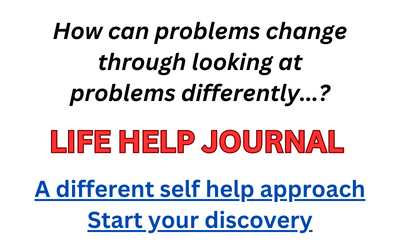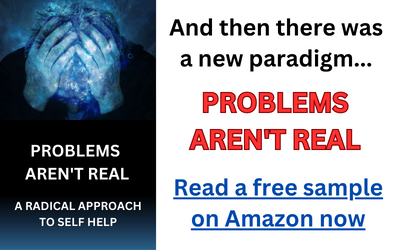The first thing to understand about panic attacks is what, exactly, causes them — and what doesn’t. What does not cause panic attacks, ever, are external factors, including being out in public, riding in an elevator, flying on a plane, public speaking, heights, snakes, spiders, driving, or any other circumstance that one might come up with.
What does cause panic attacks, and it is this and nothing else that is the cause, is thought. Thinking is the sole cause of panic attacks… and I can prove it.
Panic attacks are often associated with some sort of a trigger stimulus — being out in public for instance, or riding in an elevator. In fact panic attacks can, and do, occur in the complete absence of any trigger and within otherwise comfortable and familiar settings. This happens through the anticipation of a trigger stimulus: anticipating being out in public or anticipating riding in an elevator, or anticipating some other sort of trigger.
Anticipation in fact is thought — thought about the future. This demonstrates then that panic attacks can be caused by thought. But what about those instances when a panic attack is caused not by anticipation but by the immediate presence of a trigger stimulus? This too is a thought reaction. I’ll explain how:
An external trigger stimulus occurs, and mental activity immediately begins. The stimulus is first considered, and then quickly labeled through thought streams. The thought streams may say various things but the essential message is ‘this is bad and it is a danger to me’. This message is given the stamp of authority and validity: it is accepted as trustworthy and true.
Due to this conviction that a bad situation is at hand which represents a danger to the self, an emotional bodily response occurs — this emotional response is labeled, again through thought, as a “panic attack”. The experience of the panic attack is also thought labeled, as something bad and dangerous, and the entire cycle repeats itself.
A circle of emotional suffering.
Those cases where panic attacks seem to occur without a connection to any stimulus — where panic attacks appear to come on spontaneously — are caused by thought as well, without question. In the absence of thought there are no emotional reactions of any sort, whether the reaction is panic or something else. You can know the truth of this for yourself by carefully observing emotional reactions and listening for accompanying thought streams. These thought streams will always be there, guaranteed, and they will occur shortly before the emotional reaction happens.
Establishing thought as the cause for panic attacks, in every case, provides some insight but it does not in itself change panic attacks. It does however show the way to a very effective response to them.
Many responses to panic attacks involve attempting to stop the panic attack in some way or another. This reaction is surely influenced by the significant discomfort panic attacks cause — they are something we want to be free of, something that we don’t “want”. The problem with this orientation is that it amounts to resistance, and resistance to an emotional response strengthens it. This is the basis for Carl Jung’s well-known, and entirely accurate, expression ‘what you resist, persists’.
The proper response then to panic attacks is to first allow them to be: let them express themselves fully and in the exact manner that they want. The second proper response to panic attacks is to neutrally observe them: observe the thoughts behind them (these thinking streams are the actual cause of the panic attack), the emotional reactions they cause, the impact they have on the body.
The effect of this allowing and observation is twofold: by not resisting the panic we do not add to its strength; and by observation we bring awareness to the panic, which will transmute its energy. Try these two strategies and see this outcome for yourself. You may have to sit with (so to speak) a panic attack for a few moments before this outcome happens, but it will ultimately happen.
I appreciate that using these strategies is not necessarily easy and will perhaps even feel counterintuitive. But many of the alternatives, such as trying to escape from panic or attempting to numb its effects through medication or some other means, will never be more than temporary fixes at best.

